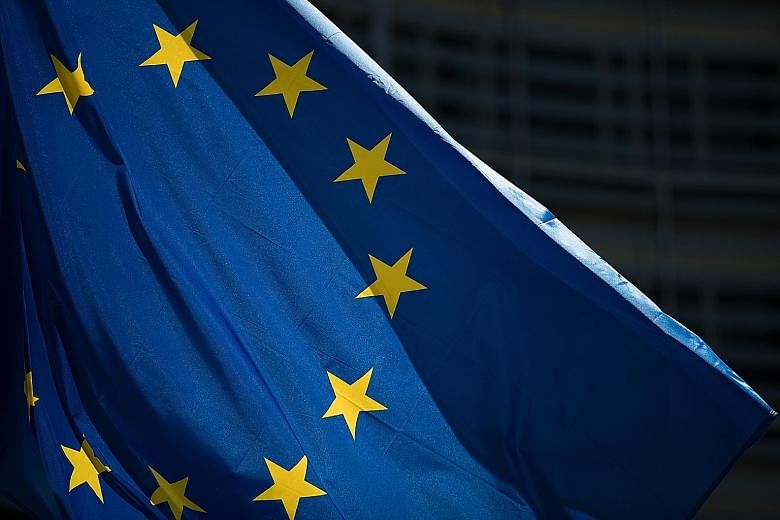FRANKFURT • The European Union's offensive against Silicon Valley looks set to resume, as officials in Brussels consider a raft of proposals aimed at increasing the amount of tax paid by digital titans such as Facebook and Amazon.
The new proposals - a copy of which was reviewed by The New York Times last Wednesday - broadly aim to tax Internet companies in the countries where they generate their business, rather than allow them to shift profits to jurisdictions with lower rates.
But the plans will give ammunition to critics who argue that the EU unfairly targets the United States technology sector.
Although the bloc's leaders deny that they are singling out American firms, opponents point to an array of investigations against household names for suspected violations ranging from how they handle user data to antitrust issues.
However, it was not clear whether the latest effort by the European Commission, the EU's executive arm, would gain sufficient traction. Any such reform would require the unanimous approval of the bloc's 28 member states.
Several countries such as France have pushed for a crackdown, but others do not want to change a system in which some of them can attract corporations through tax incentives and other inducements.
In seeking to tax revenue rather than profit - one of the options being considered - regulators want to ensure that major Internet firms pay taxes to national treasuries in the countries where they do business.
For example, Amazon, a target of the commission in the past, operates across the EU, but the firm lists its regional headquarters as Luxembourg, a tiny country with a population of around 500,000, and can thus take advantage of the low taxes there.
"The main challenge is to reform the international tax framework, which was first designed at the start of the 20th century and is no longer fit for purpose," said the report published by the commission last Thursday.
The existing system "has worked well for traditional brick-and-mortar companies but, as business activities have become more globalised and digitalised, the old rules work less well", said the report.
It found that companies that did their business online were paying an effective tax rate of 8.5 per cent, or less than half of that paid by more traditional businesses.
The EU stepped up efforts to curb tax avoidance, by companies as well as wealthy individuals, after the financial crisis, which forced many member states to adopt belt-tightening measures such as slashing public services and raising taxes.
However, because big corporations were able to shift their profits to low-tax countries, critics of the austerity programmes argued that small businesses and individual citizens were bearing the brunt of the cuts.
Since then, calls have increased for large companies to be more transparent and pay more tax.
US tech companies, in particular, have found themselves targets of the commission's ire. Commission officials are investigating Google and Qualcomm for allegedly abusing their dominant market positions.
Officials in Brussels are looking into Amazon's tax practices in Europe. And the commission has demanded that Ireland recover about US$14.5 billion (S$19.5 billion) in back taxes from Apple.
The commission said in its latest proposals that it wants to agree on a long-term solution with other countries around the world.
But that could take a long time to negotiate, and might not close enough loopholes, so it put forward several shorter-term plans that could result in companies such as Amazon, Facebook and Netflix paying larger tax bills in Europe much sooner.
"In the absence of adequate global progress, EU solutions should be advanced," said the commission, adding that it could make more formal proposals regarding the taxation issue in the coming months.
NEW YORK TIMES

